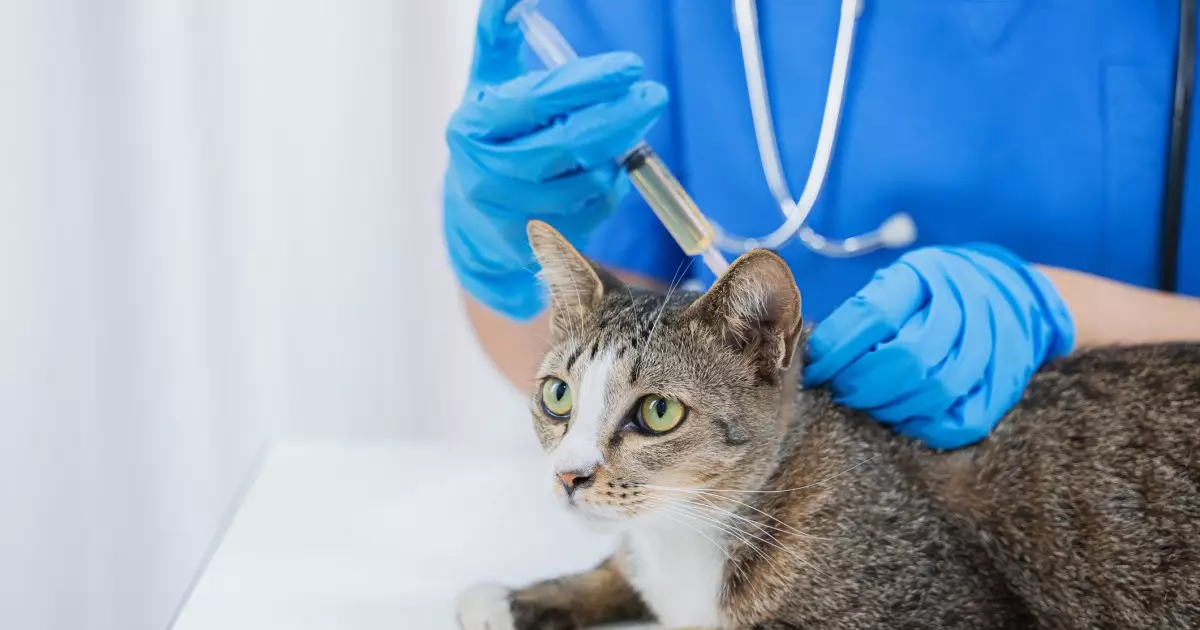Bringing a kitten into your home is akin to welcoming a new family member. As a pet owner, it’s paramount to provide a nurturing environment, supply nutritious food, and above all, offer affection. However, one crucial element of pet care that often goes overlooked is the vaccination process. With widespread misinformation regarding feline vaccinations, many cat guardians are unsure of the necessity and timing of vaccinations. This article seeks to clarify common misconceptions about cat vaccinations and underscore the importance of ensuring our feline friends receive the appropriate care.
A prevalent myth among cat owners is the belief that a single vaccination will provide lifelong immunity for their feline companions. This misconception can put cats at risk, as many owners mistakenly skip necessary booster shots, unaware that immunity can diminish over time. Scientific studies involving blood tests have illustrated that antibody levels in cats can fall significantly, making them vulnerable to infections they may have previously been protected against.
While vaccinations are vital in health maintenance, they require periodic assessment. The frequency and necessity of booster shots depend on various factors, including the specific disease prevention strategy in place and the individual cat’s health. Understanding these dynamics is essential for cat owners who want to ensure their pets remain protected throughout their lives.
Another point of confusion often arises regarding senior cats. Some guardians may assume that elderly felines, having been vaccinated throughout their lives, no longer require booster shots. However, this is misleading. Aging cats typically experience a decline in their immune response, making them more susceptible to diseases. Consequently, maintaining consistent vaccinations becomes even more critical for older animals. Cat owners must realize that the need for vaccinations does not diminish with age; rather, it can become increasingly essential to protect their health as they advance in years.
Many people believe that their indoor cats are completely safe from infectious diseases since they are not exposed to the outside environment. This perception can lead to complacency regarding vaccination, which can be detrimental. Certain viruses, such as feline panleukopenia, can thrive in outdoor environments and be unknowingly brought indoors by humans or other animals. Thus, while the risk may be reduced for indoor cats, it is certainly not eliminated.
Veterinarians conduct thorough assessments to decide which vaccinations are appropriate based on an individual cat’s lifestyle and exposure risk. Understanding these nuances can help cat parents make informed decisions about their pet’s health.
Addressing Concerns Over Over-Vaccination
Concerns about over-vaccination are genuine and must be addressed by responsible pet owners. Fortunately, veterinarians take these concerns seriously and tailor vaccination protocols according to each cat’s health needs. By dissecting vaccinations into core and non-core categories, the focus shifts to ensuring essential protections are in place for each individual cat.
Core vaccinations are essential for all cats, while non-core vaccines may only be necessary based on lifestyle and environmental factors. For example, an indoor cat may not need a vaccination against feline leukemia if it has no contact with infected felines. This approach helps balance immediate health needs with the potential risks associated with excessive vaccinations.
Every cat parent must weigh the risks and benefits of vaccination carefully. While some adverse reactions, such as a temporary swelling at the injection site, may occur, they are typically mild and resolve without intervention. Serious complications, while possible, are exceedingly rare. Understanding these potential responses can help calm the fears surrounding vaccination.
As guardians of our feline companions, it is imperative to ground our decisions in factual understanding rather than unfounded rumors. Vaccination is a protective measure that, despite its challenges, plays a crucial role in sustaining the health and well-being of our cats. By engaging with veterinarians and pursuing knowledge about vaccination guidelines, cat owners can ensure their furry friends live longer, healthier lives, free from preventable diseases.


Leave a Reply